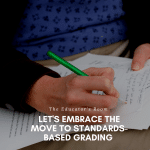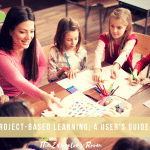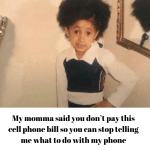Curriculum adoption is a persistent conversation education. Schools and districts continuously evaluate new programs and texts to best support teaching and learning. School districts adopt curriculums often on a predetermined, cyclical timeline. Veterans teaching the same grade levels or subject areas for decades are learning new practices and methods, regardless of their history of student learning outcomes. While any respectable program incorporates impressive, research-based teaching and strategies, implementation becomes yet another task on a teacher’s to-do list. More often than not, these curriculum adoptions imply additional training, reading, and preparation.
Schools regularly adopt new reading, writing, and math curriculums. Consider any additional role or responsibility of a teacher, and it is likely accompanied by its own curriculum or program. One hot educational topic picking up momentum in recent years is social-emotional learning (SEL). The Collaborative for Academic, Social, and Emotional Learning (CASEL) defines SEL as “the process through which children and adults understand and manage emotions, set and achieve positive goals, feel and show empathy for others, establish and maintain positive relationships, and make responsible decisions.”
[bctt tweet=”SEL as “the process through which children and adults understand and manage emotions, set and achieve positive goals, feel and show empathy for others, establish and maintain positive relationships, and make responsible decisions.”” username=””]The conversation around social-emotional learning is fabulous and necessary. We know neuroanatomically that, without the development of these skills, information is inaccessible and learning impossible. Furthermore, we now understand these skills are teachable and learnable. Sure enough, programs and curriculums supporting educators indirectly teaching social-emotional skills in their classrooms exist, and schools are happy to adopt them. Teaching with social-emotional learning in mind strays from the historically traditional teacher role; and, when presented as another course on a teacher’s already overflowing plate, SEL can feel daunting, intimidating, and unapproachable. However, teachers already have the tools and skills to successfully facilitate SEL.
Educators navigate their own emotions, goals, relationships, and decisions throughout the school day without even realizing the organic learning they offer students along the way. When teachers facilitate the conversation with students incorporating their own experiences practicing social-emotional skills, SEL can become a natural implementation rather than an added item on a checklist, and student progress with social-emotional skills becomes noticeable. Below are some inadvertent ways social-emotional learning may appear in classrooms.
Emotions
Ever encountered a jammed copier? (If not, call me. I want to work at your school.) How about a blown projector light bulb? Experienced any mid-lesson interruptions? Teachers have feelings, too. Though it can appear to the developing child to have it all together. As far as students can tell, teachers don’t or haven’t struggled with things like feelings. When teachers acknowledge managing their own feelings during the school day, students witness the power of emotional regulation. Simple statements like, “I’m feeling frustrated. I’m going to take three deep breaths, then make a new plan,” can go a long way.
Goals
One of my favorite times of the year as a teacher is the return to school from winter break in January. Kids are excited to see each other. A feeling of fresh starts and new beginnings is in the air with the onset of a new semester. It’s a great time to establish new goals, reflecting on the past semester and determining visions for moving forward. When we goal-set alongside students, we model the resiliency necessary to achieve hopes and dreams.
In January, I shared with my students my resolution to not drink coffee after noon. If you are looking for an accountability partner, find yourself a room full of middle-schoolers; they are eager and willing to rise to the occasion. My slip-ups, defensiveness, and longing when I lost track of time, drank coffee at 11:58 (I said noon!), or hit the 2pm slump showed the reality of the effort invested before a goal is accomplished.
Relationships
Humans are social beings, and middle schoolers especially so. For better or for worse, middle schoolers and I have this in common. I frequently tell stories about how I decide who to sit with during staff meetings. Some friends I can sit near and still pay attention, while other friends I will chat with too much. Students marvel that adults face such relevant decisions and challenges. We also discuss our ability to respect people who are not our best friends. I share stories of working towards common goals with colleagues I have little in common with otherwise. Modeling dialogue with colleagues and friends in front of students with intentionality is an invaluable and natural implementation of SEL in the classroom. Expressing gratitude for the efforts and kindness of others and acknowledging productive problem-solving language are two particularly effortless ways teachers can bring social-emotional skills to the forefront of any learning environment.
Teachers don’t need another curriculum to implement. We already possess the skills.






